
The German Democratic Party was a liberal political party in the Weimar Republic, considered centrist or centre-left. Along with the right-liberal German People's Party, it represented political liberalism in Germany between 1918 and 1933. It was formed in 1918 from the Progressive People's Party and the liberal wing of the National Liberal Party, both of which had been active in the German Empire.
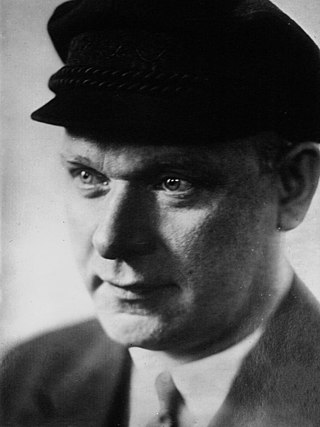
Ernst Johannes Fritz Thälmann was a German communist politician, and leader of the Communist Party of Germany (KPD) from 1925 to 1933.
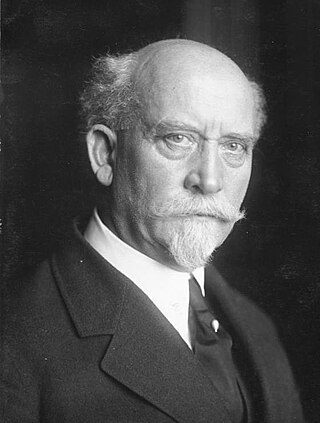
Philipp Heinrich Scheidemann was a German politician of the Social Democratic Party of Germany (SPD). In the first quarter of the 20th century he played a leading role in both his party and in the young Weimar Republic. During the German Revolution of 1918–1919 that broke out after Germany's defeat in World War I, Scheidemann proclaimed a German Republic from a balcony of the Reichstag building. In 1919 he was elected Reich Minister President by the National Assembly meeting in Weimar to write a constitution for the republic. He resigned the office the same year due to a lack of unanimity in the cabinet on whether or not to accept the terms of the Treaty of Versailles.
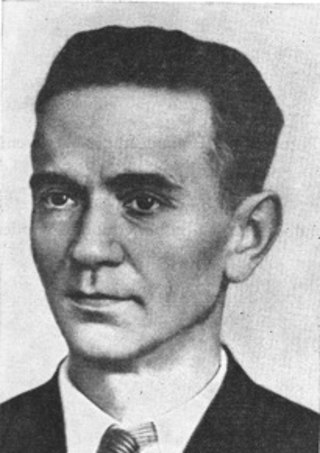
Bernhard Bästlein was a German Communist and resistance fighter against the Nazi régime. He was imprisoned very shortly after the Nazis seized power in 1933 and was imprisoned almost without interruption until his execution in 1944, by the Nazis. Nonetheless, he was one of the most important leaders of German Resistance.

The Scientific-Humanitarian Committee was founded by Magnus Hirschfeld in Berlin in May 1897, to campaign for social recognition of lesbian, gay, bisexual and transgender people, and against their legal persecution. It was the first LGBT rights organization in history. The motto of the organization was "Per scientiam ad justitiam", and the committee included representatives from various professions. The committee's membership peaked at about 700 people. In 1929, Kurt Hiller took over as chairman of the group from Hirschfeld. At its peak, the WhK had branches in approximately 25 cities in Germany, Austria and the Netherlands.
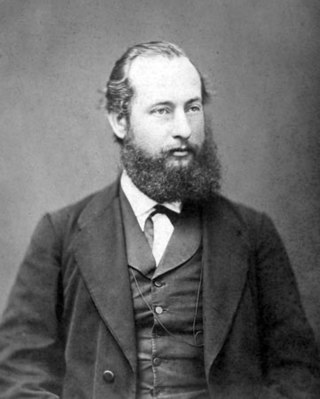
Wilhelm Hasenclever was a German politician. He was originally a tanner by trade but later became a journalist and author. However, he is most known for his political work in the predecessors of the Social Democratic Party of Germany (SPD).
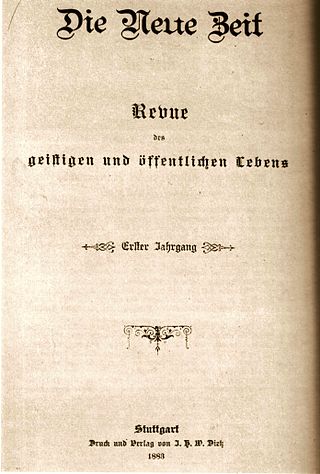
Die Neue Zeit was a German socialist theoretical journal of the Social Democratic Party of Germany (SPD) that was published from 1883 to 1923. Its headquarters was in Stuttgart, Germany.

The Hamburger Abendblatt is a German daily newspaper in Hamburg.

Carl Wilhelm Kaisen was a German politician from the Social Democratic Party of Germany (SPD) who served as the 2nd President of the Senate and Mayor of Bremen from 1945 to 1965. In 1958/59 he served as the 10th President of the Bundesrat. He became a symbolic figure of the German reconstruction in Bremen after 1945.

The Hamburger Morgenpost is a daily German newspaper published in Hamburg in tabloid format.
The Old Social Democratic Party of Germany, known as the Old Social Democratic Party of Saxony until 1927, was a political party in Germany. The party was a splinter group of the Social Democratic Party of Germany (SPD) in Saxony, and had nationalistic tendencies. Whilst the party failed to become a mass party, it played a significant role in state politics in Saxony during the latter half of the 1920s. A leader of the party, Max Heldt, served as Minister-President of Saxony 1926-1929. Wilhelm Buck was the chairman of the party.
The Internationaler Sozialistischer Kampfbund or ISK was a socialist split-off from the SPD during the Weimar Republic and was active in the German Resistance against Nazism.

Vorwärts is a newspaper published by the Social Democratic Party of Germany (SPD). Founded in 1876, it was the central organ of the SPD for many decades. Following the party's Halle Congress (1891), it was published daily as the successor of Berliner Volksblatt, founded in 1884. Today it is published every two months, mailed to all SPD members.
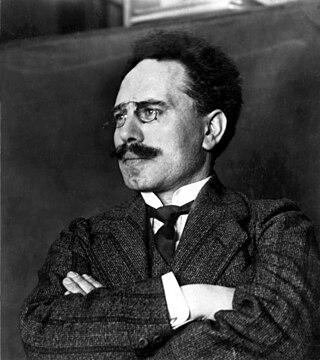
Karl Paul August Friedrich Liebknecht was a German socialist and anti-militarist. A member of the Social Democratic Party of Germany (SPD) beginning in 1900, he was one of its deputies in the Reichstag from 1912 to 1916, where he represented the left-revolutionary wing of the party. In 1916 he was expelled from the SPD's parliamentary group for his opposition to the political truce between all parties in the Reichstag while the war lasted. He twice spent time in prison, first for writing an anti-militarism pamphlet in 1907 and then for his role in a 1916 antiwar demonstration. He was released from the second under a general amnesty three weeks before the end of the First World War.
Edwin Hoernle was a German politician (KPD), author, agronomist and a Marxist theoretician. He spent the Nazi period in Moscow where, during the final years of the Second World War, he was a founding member in July 1943 of the Soviet-backed National Committee for a Free Germany .
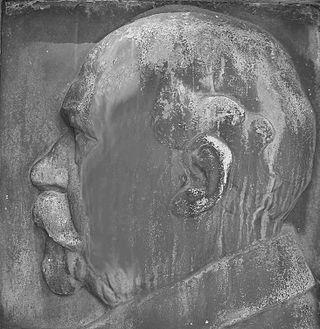
Wilhelm Josef Blos was a German journalist, historian, novelist, dramatist and politician (SPD). He served as a member of the imperial parliament (Reichstag) between 1877 and 1918, albeit with one three year break. After the end of World War I he served between 1918 and 1920 as the first president of the newly launched Free People's State of Württemberg.
Iwan Katz was a German politician. In many ways the period of his greatest influence, within the Communist Party and after his expulsion from it in 1926 outside it, came between 1924 and approximately 1927. Between 1924 and 1928 he served as a member of parliament . On account of his record of activism he was subject to persecution during the twelve Hitler years, spending the years from 1941 till 1944 in concentration camps. He nevertheless survived became a post-war force in the politics both of Berlin and, till serious heart triggered disease his retirement in 1954, in East and West Germany more broadly.
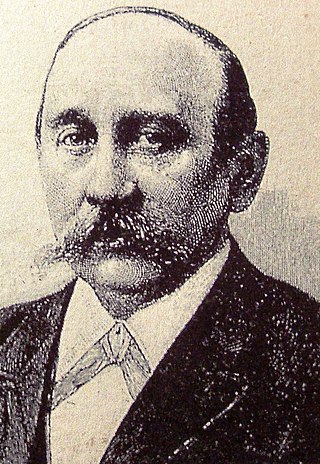
Jacob Audorf was a German poet, businessman, journalist-commentator and Labour movement pioneer. Much of his poetry was not remotely political, but it was for his political and polemical writing that he became known. The most frequently repeated of his poems was the so-called "German Workers' Marseillaise", a set of three verses of uplifting German-language encouragement for the building of a better future according to the socialist precepts of the time. The words were to be sung, in place of the French language original text, using Rouget de Lisle's already well known revolutionary melody for the Marseillaise.
Neuer Weg was the official media outlet of the East German ruling party, Socialist Unity Party (SED). Its subtitle was organ des Zentralkomitees der SED fur Fragen des Parteilebens. The magazine was in circulation between 1946 and 1989.

The SPD Hamburg, officially "SPD State Organisation Hamburg", is the state organisation of the Social Democratic Party of Germany in Hamburg and is the state association with the largest membership of any party in the city state.
















